WHO IS EMHA AINUN NADJIB? Born in the village of Jombang, East Java, his name is in fact Muhammad Ainun Nadjib, and though he is more often referred to on his book jackets as Emha Ainun Nadjib, he is better-known as “Cak Nun” to the people, he is an enigma.
If you mention the name Cak Nun to the thousands of Indonesian students and workers in Malaysia now, you would doubtless provoke a very positive reaction, one of wonder and respect, though they may never have encountered him face to face.
Is he a poet, an essayist, a dramatist, a kiai? Is he a singer and a musician? Yes, but he is also a social critic, a speaker on TV and a writer in the print media, and furthermore he has become an articulator who gives voice to the injustices suffered by the people in gatherings of thousands as well as directly to the powers that be. If he first emerged as a poet (the poet I knew at the University of Iowa in autumn 1981), Emha has now become quite well-known, far more famous than if he had remained only a poet, due to the manifestation of art, religion and intellect demonstrated by him time after time in the face of thousands of onlookers as well as in the pages of more than 12 books of poetry and 37 books of prose, to the extent that he has now become an Indonesian cultural phenomenon who has ignited our perceptions and of course, reactions. His name has now reached beyond Indonesia to neighbouring countries and even to the United Kingdom, Europe and Korea as the Ambassador of Culture from his country, the Republic of Indonesia. Creativity, thought, prolific writing, articulation, and artistic performance are all the trademarks of Emha. One is curious to know more about him and how he is strengthened by the presence of Novia Kolapaking, known in her own right as an actress and singer, who is now his wife and the mother of his three children. The gamelan music group, Kiai Kanjeng, who often accompany Emha in performance are no small part of the impact of the sound of Salawat, the humour and the dakwah [1]of Emha in the centre of the people; always responsive, while feeling entertained.
So! It really is the time for a book to be published about the artist, thinker and cultural observer named Emha Ainun Nadjib or Cak Nun; a book to reach his audience, the general reader, those involved in the arts and culture and even the political leaderships of developing countries so that they may understand the the important role and function of social culture in the development of national welfare as they face the currents and shifts represented by globalisation.
The efforts of Ian L. Betts in writing this book “The Silent Pilgrimage: Emha Ainun Nadjib, A Lifelong Journey of Faith” in English are of real meaning and worthy of note because he has made a considerable study of documents as well as personally taking part closely in the activities of Emha himself. As a result, his views and writing in the book are no mere personal, subjective, account, but rather comprise a book based on both primary and secondary sources, offering an image of this cultural phenomenon that is both fair and balanced. The importance of this book is also in that because it is in English it will reach readers overseas, particularly those in the West, who really understand very little of the lives of those in the East, who, though plagued by problems, are rich in the colourful variety of their dynamic cultures and socio-economic potential. What is written in this book does not concern merely the life of one man, Emha Ainun Nadjib, but there is also a connection to the problems of life: economic poverty; social justice; the abuse of power; the discouraging effects of globalisation; Islam as a certainty and an answer; and also the story of how a struggle that must always remain consistent in holding to its principles and to its voice, both in times of normalcy and in times of crisis.
This book is perhaps not a unique story in Asia or in any country that is constantly shaken by the problems of social and economic development, power politics, the threat of hegemonistic America and the tension felt between the pull of tradition and that of modernisation, as well as the rise of Islam (as in Indonesia, which has been referred to as The Sleeping Giant of Southeast Asia). The brave social commitment upheld by cultural figures such as Emha can also be found in other developing countries, but they number a mere few, of which Emha is one; one among a small number persevering in their work and going from village to village, city to city; that is how it is in this world, faced with crisis after crisis with different languages and faces in this busy world where we owe so much to so few.
Thanks then to author Ian L. Betts, for having taken the trouble to prepare this valuable account which I believe will attract a busy readership in Indonesia, Malaysia and other countries. To Emha, Novia and Kiai Kanjeng, you have our admiration. And especially to my brother Emha, his family and loved ones, may you always be ready to receive Allah and may His blessings, mercy and strength always be with you so that He may open a window into the heart of our nation for the sake of the welfare of the world in the here and now and in the hereafter.
This book bears witness to good works that have been done, and I hope that it may become a source of inspiration and critical-creative evaluation for the young generation, the Muslim community and to the artists who are yet to come.
Peace be upon you.
[1] Islamic term for proselytising or Islamic propagation.
By Datuk Baha Zain (Malaysian writer and cultural observer) KUALA LUMPUR, MALAYSIA Dusun Permai, Kuala Lumpur, Malaysia, 2006

































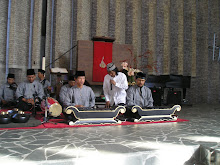
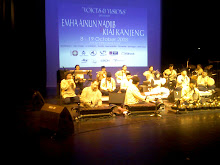

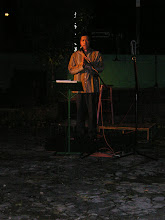



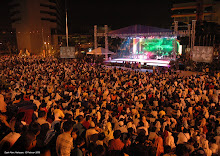
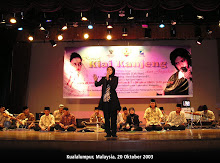
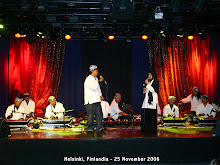.jpg)



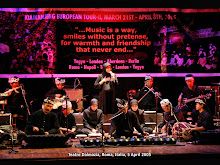


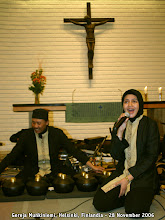.jpg)

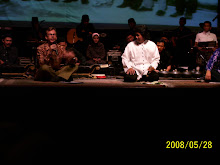.jpg)
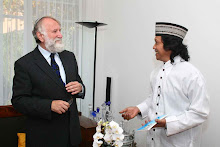
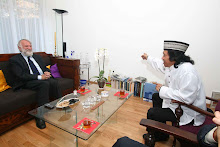
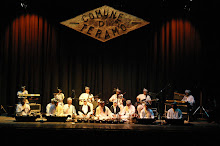


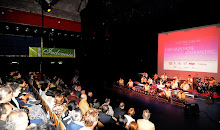

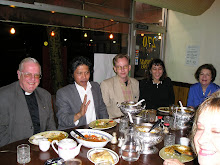


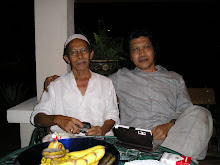
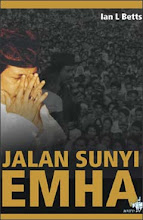
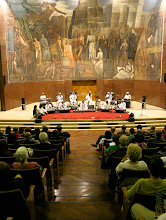
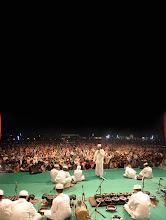

No comments:
Post a Comment